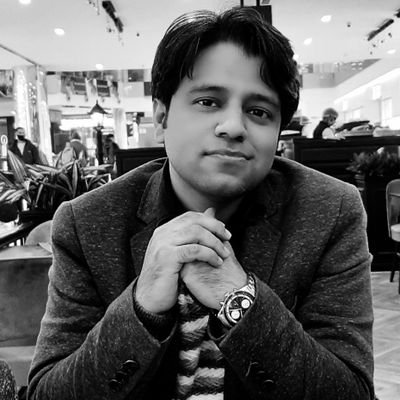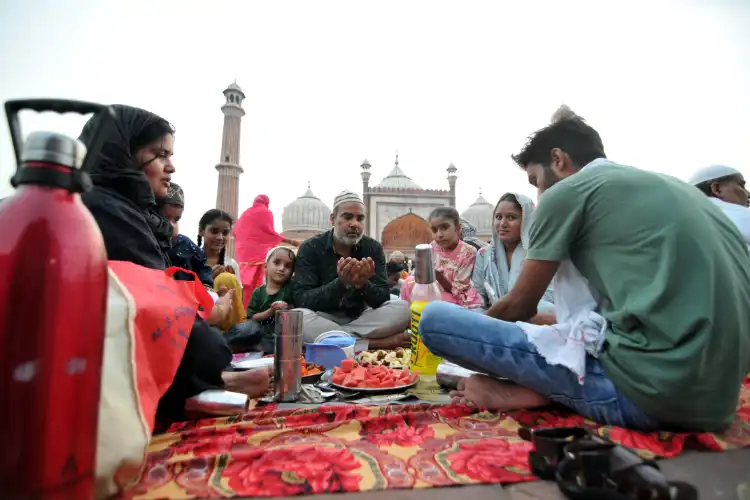Indian Muslims - families breaking Ramazan fast at Jama Masjid of Delhi (Pics: Ravi Batra)
 Saquib Salim
Saquib Salim
The world is celebrating the International Day of Democracy to emphasize the importance, strengths, weakness, and other aspects of this most popular system of government. In India, the largest democracy in the world, people are often misinformed about the commitment of Indian Muslims toward establishing democracy in the country. The misconception mostly arises from taking a few anti-democratic fanatics as representatives of the society.
International Day Of Democracy
Muslims have remained at the forefront of the battles fought for establishing democracies in India. It should not be lost that the equal voting rights for Indian women were won in 1935 after a political battle led by Begum Jahanara Shahnawaz. She was the only woman representative to attend all three Round Table Conferences (RTC) in the early 1930s where discussions over certain autonomies to the Indians were discussed. At RTCs, Begum raised the point that women should be given equal rights when choosing a representative to legislatures.
After the RTCs were concluded she remained in England and created public opinion in favour of Indian women’s rights by meeting important politicians of England. When the Government of India Act, 1935, was finally drafted, Indian women were given voting rights.
Begum’s was an important victory but far from what India wanted. The franchise was not a universal adult franchise. Only people with a certain level of economic assets or education were allowed to cast votes. Moreover, Muslims and Sikhs could vote only for their coreligionists, a system called separate electorates. Muslim leaders like K. A Abdul Hamied, Maulana Abul Kalam Azad, Zakir Husain, and others have blamed separate electorates for the ‘success’ of the Muslim League. We often miss noticing that in 1946 Muslim League won a majority of Muslim seats under a system where only affluent people could vote while a majority of Muslims, who were backward, couldn't.
In 1940, Maulana Ubaidullah Sindhi, a revolutionary and Islamic scholar, chalked a plan for the future of India. He asked his followers to oppose separate electorates and a system where only elites could vote. Sindhi wrote, “our party will obviously work in a Muslim majority province (Sindh), but it will operate on the principles of joint electorates. If Muslims are such cowards that they cannot win the confidence of fellow Hindus and Sikhs to win elections and need crutches of separate electorates then this community should be terminated.”
During the Constituent Assembly debates, Maulana Hasrat Mohani, the man who coined the slogan Inquilab Zindabad, demanded that a Constituent Assembly elected based on separate electorates should not draft the constitution of a Free India. Hasrat Mohani was one of the members of this Assembly and served on the drafting committee. On 4 November 1948, he moved an amendment saying, “the consideration of the Draft Constitution of India be postponed till the election of a fresh and competent Constituent Assembly on the basis of Joint Electorates and the formation of political rather than communal parties in India.”
When a proposal to reserve seats for minorities was put in front of the Assembly, Mohani vehemently opposed the idea and got it removed. He said, “there is absolutely no need for reservations after we have made provision for joint electorates and adult franchise.…… On a communal basis, you are making its scope limited as you have already said that you would like to give reservations to the Muslims because they are in minority…..Why do you call the Muslims a minority? They can be termed as a minority only when they function as a communal body. So long as Muslims were in the Muslim League, they were in a minority. But if they elect to form a political party without any restriction leaving it open to any community, then you should remember that whenever political parties would be formed, the Muslims would give fight by forming coalitions.”
In 1951, after the Constitution of India was adopted Maulana Husain Ahmad Madni in his presidential address to Jamiat-e-Ulema-e-Hind, one of the largest body of Islamic scholars, said that now the country had adopted a system where the political rights of every individual irrespective of creed were equal therefore every Muslim must strengthen this democracy. He believed that Islamic scholars could teach and guide Muslims in a way that they work towards a secular and democratic India.
The list is long and I have tried to show that every kind of prominent Indian Muslim - women, Ulema, and socialists, had put their efforts into making India the largest democracy.

 Saquib Salim
Saquib Salim